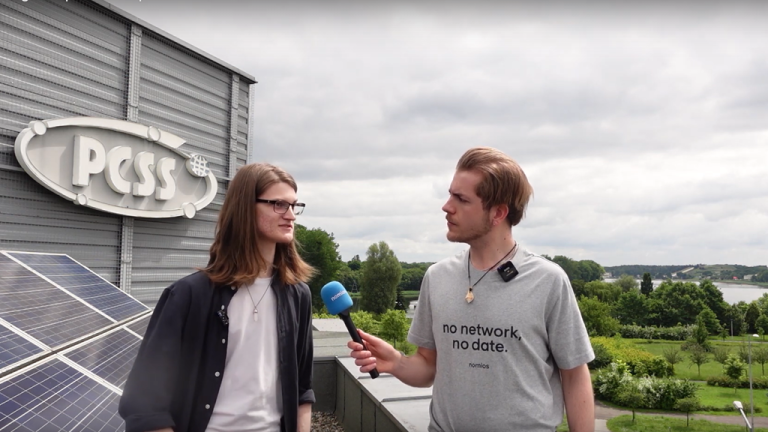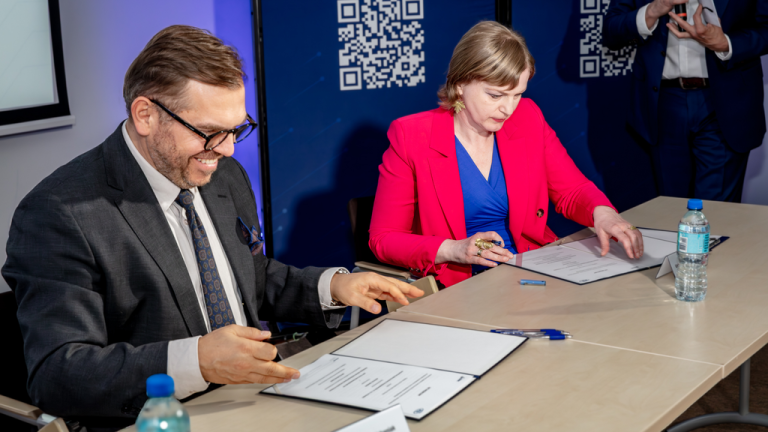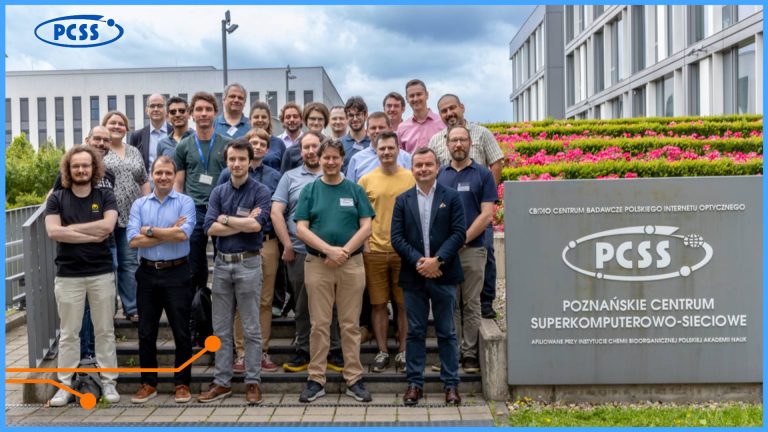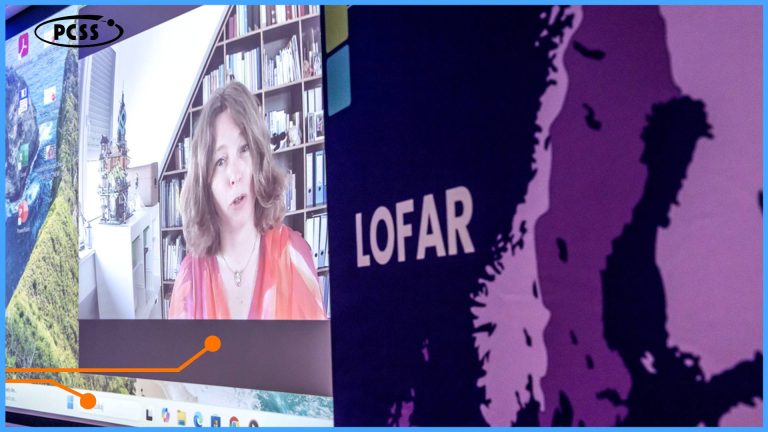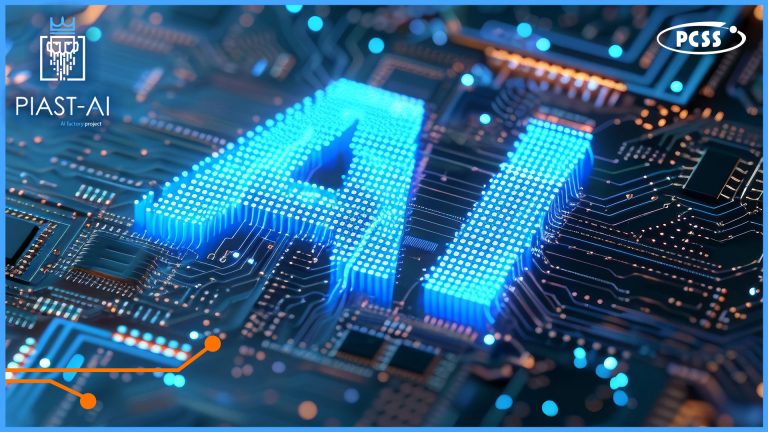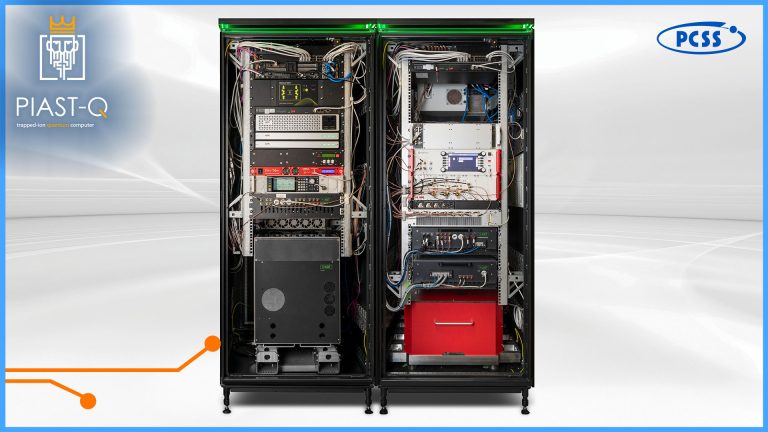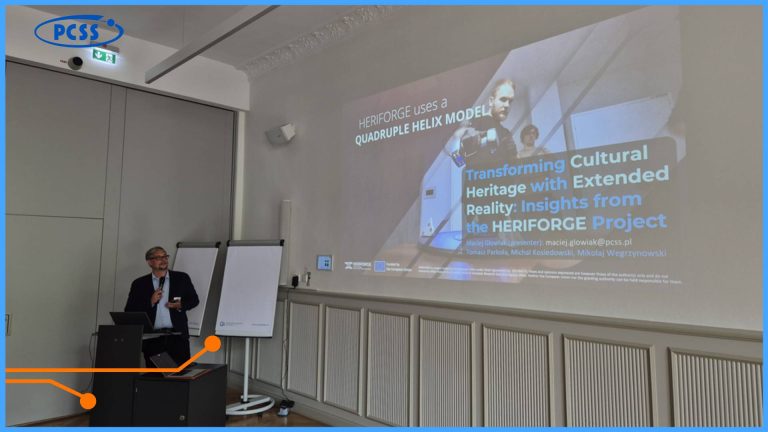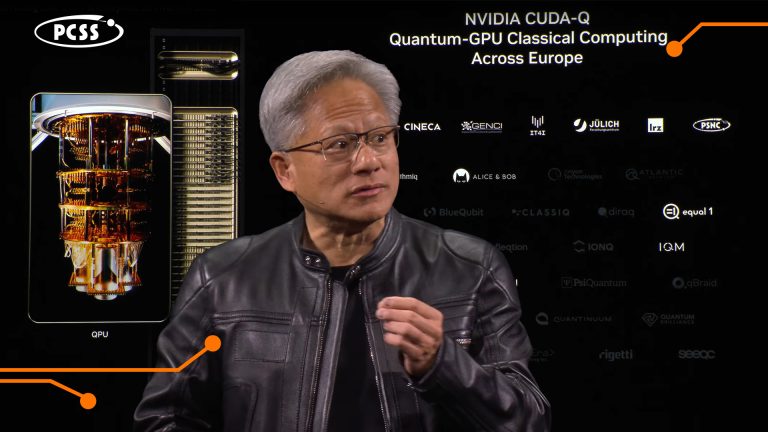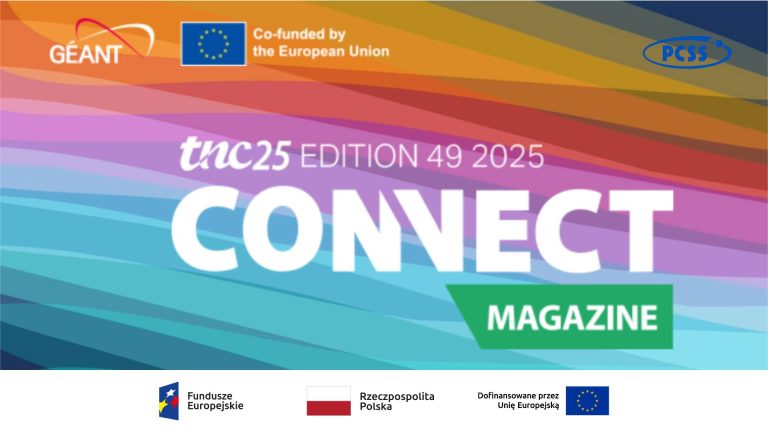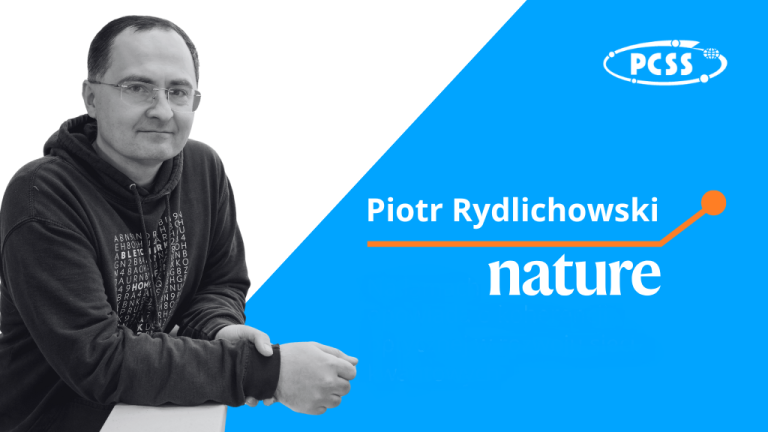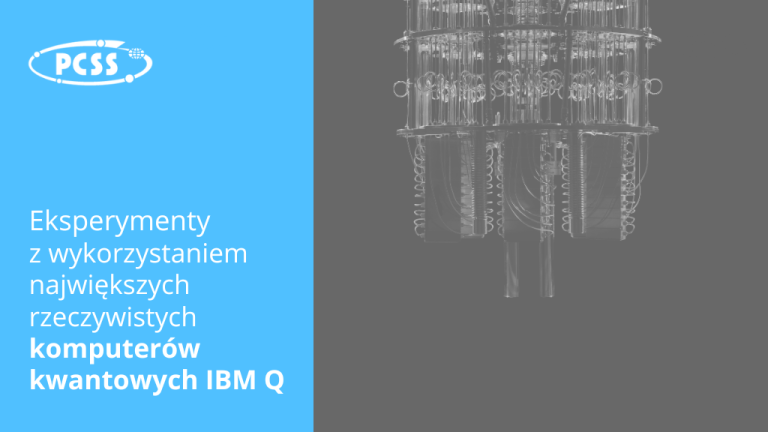In January 2024, the Poznan Supercomputing and Networking Center (PSNC) affiliated with the Institute of Bioorganic Chemistry of the Polish Academy of Sciences (IBCH PAS) joined EBRAINS as a full member, thus gaining the opportunity to co-design research infrastructure and contribute to the development of digital tools to support brain research. The M. Nencki Institute of Experimental Biology of the Polish Academy of Sciences has also joined the association as an Associated Member as of 2024.
EBRAINS is a new digital research infrastructure developed as part of the EU-funded Human Brain Project (HBP), that gathers a wide range of data and tools for brain-related research. It builds on the latest advances in neuroscience, computer science, robotics and related technologies to help harness the latest scientific discoveries for medical and industrial innovation for the benefit of patients and society.
EBRAINS is on a mission is to provide the broad scientific community with open, advanced solutions that stimulate brain science collaboration, pave the way for groundbreaking discoveries and aim to put Europe at the forefront of the rapidly growing field of multi- and transdisciplinary brain research and use. Poland must therefore not be left out of this trend.
EBRAINS aims to accelerate brain research through a comprehensive combination of data, tools and infrastructure, including data sharing, atlas creation, modeling, simulation, high-performance computing, big data analysis, neuro-robotics, neuromorphic computing and more.
EBRAINS as a research infrastructure is coordinated by EBRAINS AISBL (Belgium), an association that acts as a Central Hub, with 10 members to date. Furthermore, EBRAINS boasts over 45 Associated Members, which makes it a very large-scale organization, based on the activity of national hubs. Until the end of 2023, Polish units did not participate in these activities.
– We’re very excited to welcome the Poznan Supercomputing and Networking Center as a full member of EBRAINS. With their strong background in high performance computing, data analytics and pan-European projects, I am confident that they will make a significant contribution to the EBRAINS research infrastructure. Also, I am pleased that the Nencki Institute, with its unique expertise in brain functional research, has joined us as an Associate Member, said Katrin Amunts, Joint-CEO of EBRAINS.
Over 30-year-long PSNC activity for the scientific community in Poland is related to the development of eInfrastructure and advanced information and communication technologies and their applications.
– In more than 270 European PSNC projects to date, we are developing technologies for computational simulation, machine learning, BigData analysis, digital twins, advanced visualization and many more. A significant area of their applications is boosting the digital transformation of medicine and the development of personalized medicine. EBRAINS guarantees us to strengthen the potential of einfrastructure for a transdisciplinary approach to the challenges of broadly understood neuroscience, and thus will allow Polish institutions to participate more in European projects and raise the visibility of their achievements in the international arena, explains Cezary Mazurek, Ph.D., Plenipotentiary Director of IBCH PAS for PSNC.
Participation in EBRAINS also provides opportunities to further develop the research areas covered by the scientists at the Institute of Bioorganic Chemistry of the Polish Academy of Sciences.
-The Institute has been conducting research into the molecular processes underlying the development of neurodegenerative diseases for many years. We are also coordinating the development of the ECBiG-MOSAIC research infrastructure, which uses artificial intelligence algorithms to create models supporting oncological and cardiological diagnostics. In collaboration with clinicians at the National Institute of Oncology in Gliwice, we have developed a model based on data from patients with brain tumors to improve the diagnosis of glioblastoma multiforme based on MRI scans, says Luiza Handschuh, Ph.D., professor at IBCH PAS, Director of the Institute.
One of the directions of PSNC’s development is to expand the scope of its research into the application of supercomputing infrastructure and artificial intelligence in brain science.
– In addition to the earlier performed analyses of functional magnetic resonance imaging (fMRI) data for praxis and language, we have also undertaken work on the use of deep learning models for neurooncological research. Further plans for the development of computational technologies for neuroscience at PSNC include the use of artificial intelligence and quantum computing for, among other things, the study of neurodegenerative diseases, emphasizes Mikołaj Buchwald, Ph.D., coordinator for neuroscience at PSNC.
The beginning of 2024 saw the M. Nencki Institute of Experimental Biology of the Polish Academy of Sciences also join EBRAINS as an Associated Member.
-The Nencki Institute is one of the leading non-university biomedical research centers in Poland. Its mainstream research focuses on new therapies and diagnostic methods for metabolic disorders, neurodegenerative diseases, neurological disorders, cancer, diabetes and other civilization diseases. Research in neuroscience, including neuroanatomy, neurochemistry, neurophysiology, neurogenetics and psychology, has also been conducted at the Nencki Institute for over a century. This dynamic development in neuroscience allows for multidisciplinary projects that combine the latest technological advances with sophisticated imaging, molecular biology and advanced bioinformatics tools. The research conducted at the Nencki Institute, especially that on brain pathology, dovetails perfectly with the mission of EBRAINS, which aims to understand the mechanisms of neurological diseases by developing state-of-the-art tools and resources that enable scientists to understand brain function at different levels: from molecular to systemic. Through active collboration and participation in EBRAINS projects, the Nencki Institute can contribute to the development of a more advanced and integrated neuroscience research environment at the European level, assures the Director of the Institute, Prof. Agnieszka Dobrzyń .
Together with Poznan University of Medical Sciences, PSNC has initiated the process of building a Polish EBRAINS node, in the form of a national consortium which will invite scientific and medical institutions implementing projects related to the development of digital infrastructure to support brain research.
The most important factor for forming the optimal composition of a national EBRAINS-PL node will be the ability to develop open data resources and tools to support the development of European infrastructure. These tasks must also fit into the initiative to develop European Common Data Spaces. The EBRAINS Digital Medicine Platform enables researchers to analyze a large and growing volume of neurological clinical data: currently more than 20,000 datasets, covering dementia, epilepsy, mental health and traumatic brain injury, from a growing number of participating hospitals (currently 30), while ensuring patient anonymity. Every effort is being made to ensure that the data available through EBRAINS adheres to the EU’s high ethical standards and adheres to the “FAIR” (Findable, Accessible, Interoperable, Reusable) principle, which is both good academic practice and EU policy.
The effort to connect Polish scientific research institutions to EBRAINS was initiated by the Polish Science Contact Agency “PolSCA” of the Polish Academy of Sciences in Brussels.
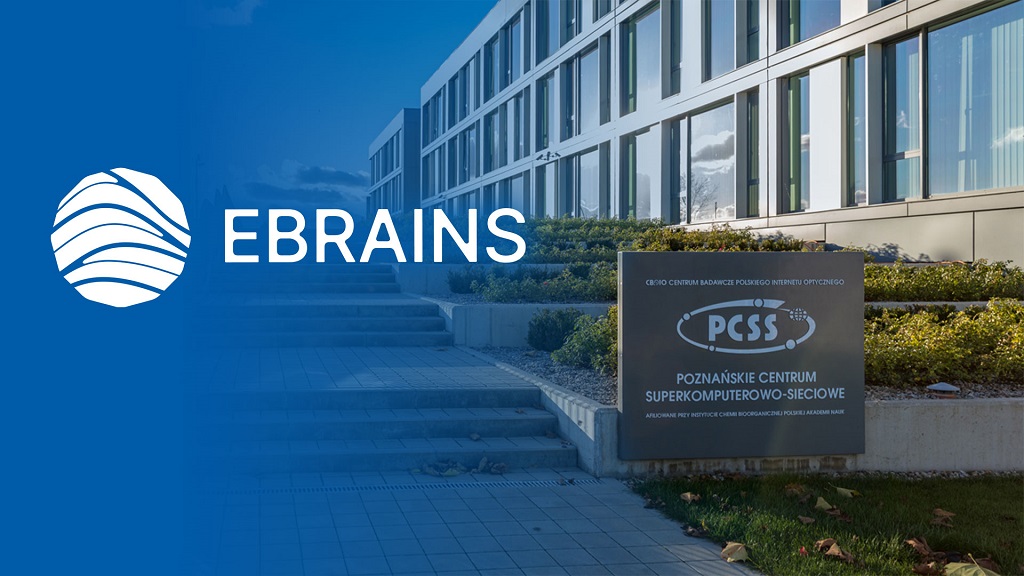
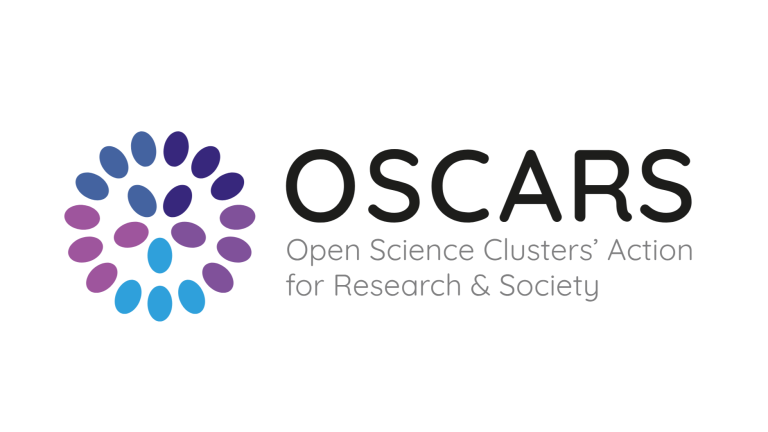


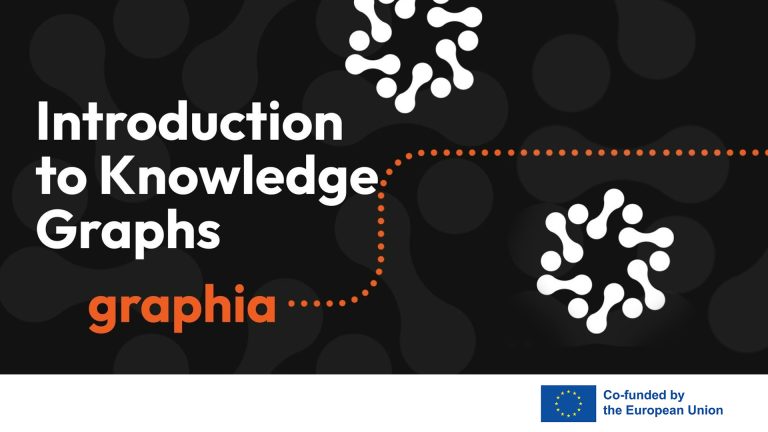
![The image displays the word "LUMEN" in a stylized, outlined font, with different letters connected by lines and arrows to various academic disciplines. The letters "L" and "U" on the left are linked to "Mathematics [Maths]" and "Social Sciences and Humanities [SSH]," while the letters "M," "E," and "N" on the right are associated with "Earth System Science [ESS]" and "Molecular Dynamics [MD]." The overall design suggests an interconnectedness of these fields, potentially illustrating the interdisciplinary nature of something represented by "LUMEN".](https://www.psnc.pl/files/2025/05/lumen2_EN-768x432.jpg)

